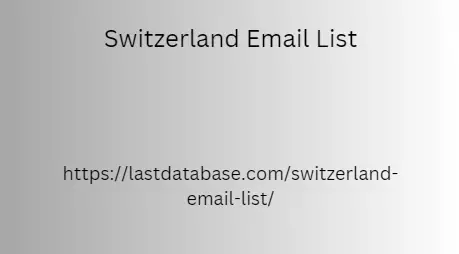Post by huangshi715 on Feb 15, 2024 9:47:44 GMT
If you’re using DKI, do some manual searches for the queries driving those ad impressions and see what your competitors are up to. Start with the high impression DKI ads that have a low CTR and make sure you aren’t creating choice fatigue. If you see lots of ads with the same or very similar headlines, write new custom ads to test. If you’re using #DKI for your #PPC ads, make sure you’re not causing choice fatigue. CLICK TO TWEET 2. Don’t make empty promises The best ad copy headlines have offers or promises that can be fulfilled. PPC ads that offer promises that aren’t fulfilled on the landing page .
Brian Clark of Copyblogger explains that making vague promises can Switzerland Email List turn people off: “Advertisements that proclaim, ‘satisfaction guaranteed’ are fairly common – and that’s the problem. The statement can come across as just another hollow promise, because it often is.” Here’s an example of a false promise: empty-promises Notice how they advertise “Free Invoicing Software” in the headline and description? Now have a look below at the landing page the ad leads to. There, we learn that the software isn’t exactly free – it comes with a 30-day free trial. PPC ad copy landing page The misleading PPC ad for “Free Invoicing Software” leads to a landing page that reveals that the real offer is $59/year.

While only subtly different semantically, “completely free” sets high expectations. Your #PPC ad shouldn’t say your offer is free if you only offer a free trial – jamesscaggs CLICK TO TWEET A free trial is an awesome thing, but when you overstate your offer and then show a visitor a different offer (perceived as worse), it activates the portion of the brain associated with pain. The headline “Free Invoicing Software” definitely gets my attention, but it sets the wrong expectation. We have to respect the consumer in order to win their trust instead of using smoke and mirror tactics just to earn their click. Here’s how Oli Gardner put it in his talk at Hero Conference: “Marketers aren’t respecting the click.
Brian Clark of Copyblogger explains that making vague promises can Switzerland Email List turn people off: “Advertisements that proclaim, ‘satisfaction guaranteed’ are fairly common – and that’s the problem. The statement can come across as just another hollow promise, because it often is.” Here’s an example of a false promise: empty-promises Notice how they advertise “Free Invoicing Software” in the headline and description? Now have a look below at the landing page the ad leads to. There, we learn that the software isn’t exactly free – it comes with a 30-day free trial. PPC ad copy landing page The misleading PPC ad for “Free Invoicing Software” leads to a landing page that reveals that the real offer is $59/year.

While only subtly different semantically, “completely free” sets high expectations. Your #PPC ad shouldn’t say your offer is free if you only offer a free trial – jamesscaggs CLICK TO TWEET A free trial is an awesome thing, but when you overstate your offer and then show a visitor a different offer (perceived as worse), it activates the portion of the brain associated with pain. The headline “Free Invoicing Software” definitely gets my attention, but it sets the wrong expectation. We have to respect the consumer in order to win their trust instead of using smoke and mirror tactics just to earn their click. Here’s how Oli Gardner put it in his talk at Hero Conference: “Marketers aren’t respecting the click.
